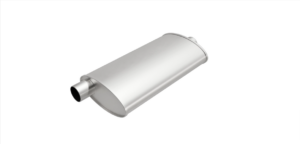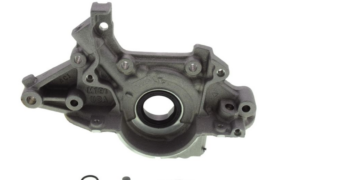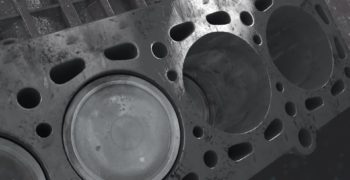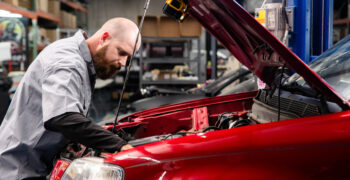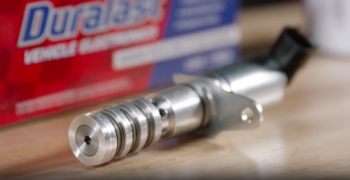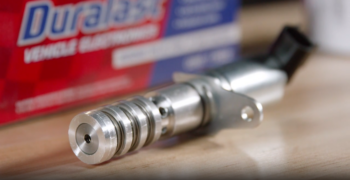Why Does My Engine Sound Loud When Accelerating
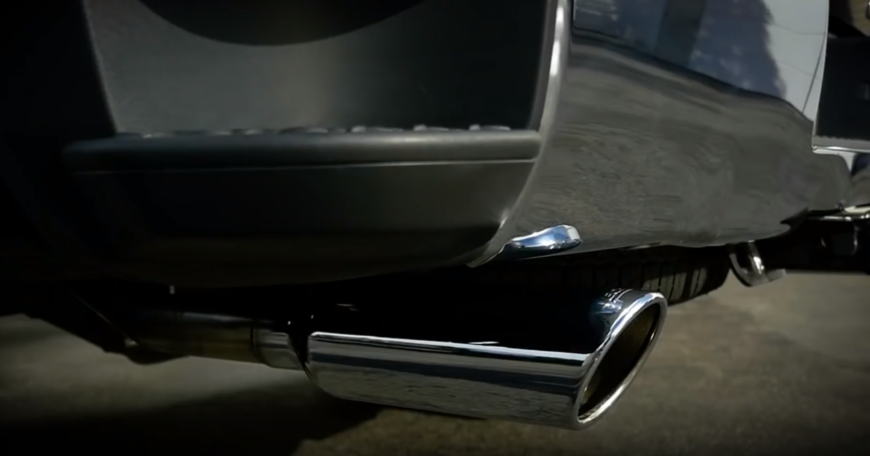
Accelerating your car should be thrilling, but sometimes, your engine’s roar isn’t just music to your ears. Instead, it’s a loud and alarming sound that could signal a problem. It could be something relatively minor, or it could signal the need for a serious and costly repair.
Find out what’s normal and what’s worth your concern when your car makes noise while accelerating. By digging into the symptoms, we’ll help you identify the ailments and provide a prescription for returning that loud racket to the normal tone you know.
Suggested AutoZone Products
Understanding Engine Noise during Acceleration
When you push the pedal and your engine responds with a rising note, it’s important to understand what’s creating the sound you hear. Acceleration requires your engine to burn more fuel and air, generating higher energy levels. When you demand this power increase, the internal components of your engine can produce various sounds, often becoming more pronounced. Additionally, factors like the type of engine such as inline, V-shaped, boxer, and so on, the number of cylinders, and the design of the exhaust system can influence the nature of these sounds.
Engine noises can vary dramatically. Some might be high-pitched whining, while others can be low rumbles. A motorcycle-like sound often means your engine is working hard and that the exhaust system might not be properly sealed. Common types of engine noise you might encounter during acceleration include:
- Knocking or pinging – This is a high-frequency rattling noise that often signals the fuel in your engine isn’t burning evenly or at the right time, potentially damaging critical components.
- Roaring – These can be symptomatic of exhaust issues, like leaks or problems with the resonator, a part of the muffler designed to reduce noise.
- Tapping, clicking, or ticking – This noise, which tends to be more rhythmic, can result from lack of oil, issues with the valvetrain, or even problems in the engine’s rotating parts.
Common Causes of Loud Engine Sounds
There are several common culprits when it comes to a noisy engine during acceleration. And within each category, there can be multiple causes.
Exhaust System Issues
The exhaust system manages gases from the combustion cycle and muffles the noise your engine makes. When this system is compromised, you get loud engine sounds. It could be from:
- Exhaust leaks – A hole in the exhaust system such as a muffler or exhaust pipe or a leak in places like the exhaust manifold can cause a significant increase in noise.
- Catalytic Converter Failure – One of the components for treating exhaust gases, a failing catalytic converter can lead to a louder engine.
Engine Misfires
These are instances when the air-fuel mixture fails to burn as it should, creating imbalances and vibrations:
- Fuel injection system issues – A fuel injector that’s clogged or malfunctioning can lead to too little or too much fuel being delivered to the cylinder, causing misfires.
- Ignition problems – A weak spark, malfunctioning spark plug, or ignition coil can result in the fuel not being ignited properly.
Worn or Faulty Components
Over time, the wear and tear on engine components can lead to increased noise levels:
- Piston slap – This occurs when the piston rocks back and forth in the cylinder, causing a metallic sound as it contacts the cylinder wall.
- Worn bearings – Bearings support the rotating shafts in your engine and can produce a knocking noise when they’re worn out.
Impact of Acceleration on Engine Performance
Understanding the effects of acceleration on your engine’s health is essential to long-term vehicle maintenance. Sudden acceleration can place a considerable strain on several internal components. The faster your engine operates, the more valves, pistons, and other moving metal parts move, which can lead to increased wear. Turbochargers can further exacerbate the issue, as the turbo spools up to provide more power, increasing pressure and heat.
Aggressive driving can severely hamper your fuel economy. The faster you accelerate, the more fuel your engine will consume. But there are ways to balance power and efficiency, even during acceleration. Gradually increasing your speed puts less strain on your engine and can save fuel, and keeping your engine in good shape can ensure that no harm is done, even during acceleration.
Diagnosing and Resolving Engine Noise
Now that you understand the factors at play, it’s time to get to the bottom of the issue, starting with some do-it-yourself methods.
If your engine is causing noise, these simple checks can often reveal the source:
- Perform a visual inspection of your exhaust system, looking for holes, rust, or other indicators of damage.
- Ensure that your spark plugs are clean and not worn, and that the ignition cables and connections are secure.
- A stethoscope can be a handy tool to isolate the source of the noise, whether it’s a pulley, water pump, or another accessory.
If the issue isn’t readily apparent or you’re uncomfortable diagnosing the problem yourself, don’t hesitate to seek help from a professional. A qualified mechanic can provide a more thorough inspection, using diagnostic tools and methods that might be beyond your scope.
Need parts to correct your engine noise? At AutoZone, you’ll find everything you require to service and repair your vehicle from Duralast and other well-known brand names.
FAQ/People Also Ask
If the noise is excessive, it may be due to problems with the exhaust system, engine components, or even the type of vehicle.
A dirty air filter can cause lean fuel mixtures and uneven combustion, leading to noise and potentially engine damage. Regular air filter replacements are a simple way to keep your engine operating smoothly.
Listening to your car and its normal sounds is important. If the noise is new, especially if it’s accompanied by poor performance, investigate the cause further.
Ignoring engine noise can lead to further damage, higher repair costs, and even the inability to drive your vehicle.
Manual transmissions often produce more engine noise during acceleration, as the driver has more control over the engine’s RPM. Automatic transmissions, with their torque converter systems, may mask some of the engine’s natural sounds.
